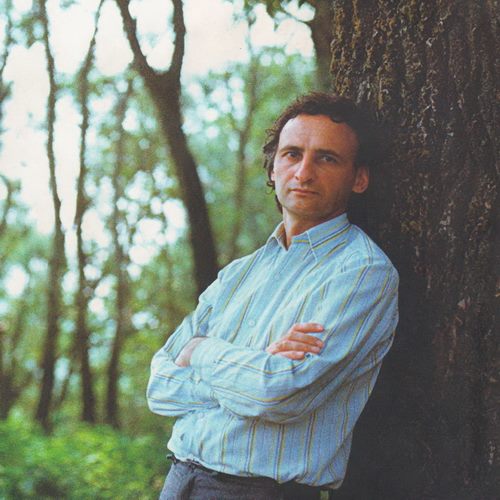De Amerikaanse dichter, schrijver, essayist en criticus Benjamin S. (Ben) Lerner werd geboren op 4 februari 1979 in Topeka, Kansas. Zijn moeder is de klinisch psycholoog Harriet Lerner. Lerner studeerde in 1997 af aan de Topeka High School, waar hij deelnam aan debat en forensisch onderzoek, en won in 1997 het National Forensic League National Tournament in International Extemporaneous Speaking. Aan de Brown University studeerde hij bij de dichter C.D. Wright en behaalde hij een B.A. in politieke theorie en een Master of Fine Art s in poëzie. Lerner ontving de Hayden Carruth-prijs voor zijn cyclus van 52 sonnetten, The Lichtenberg Figures. In 2004 noemde Library Journal het een van de 12 beste dichtbundels van het jaar. In 2003 reisde Lerner met een Fulbright Scholarship naar Madrid, Spanje, waar hij zijn tweede dichtbundel schreef, “Angle of Yaw”, dat in 2006 werd gepubliceerd. Het werd uitgeroepen tot finalist voor de National Book Award. In 2010 verscheen zijn derde dichtbundel “Mean Free Path”.Met Lerners eerste roman, “Leaving the Atocha Station”, gepubliceerd in 2011, won hij de Believer Book Award en was hij een finalist voor de Los Angeles Times Book Award voor eerste fictie en de Young Lions-prijs van de New York Public Library. In 2008 werd Lerner poëzieredacteur voor Critical Quarterly, een Britse wetenschappelijke publicatie. In 2016 werd hij de eerste poëzieredacteur bij Harper’s. Hij doceerde aan het California College of the Arts en de University of Pittsburgh, en trad in 2010 toe tot de faculteit van het MFA-programma aan het Brooklyn College. In 2011 won hij de “Preis der Stadt Münster für internationale Poesie”, de eerste Amerikaan die de eer ontving. Lerner doceert aan Brooklyn College, waar hij in 2016 werd benoemd tot Distinguished Professor of English.
The dark collects
The dark collects our empties, empties our ashtrays.
Did you mean “this could go on forever” in a good way?
Up in the fragrant rafters, moths seek out a finer dust.
Please feel free to cue or cut
the lights. Along the order of magnitudes, a glyph,
portable, narrow—Damn. I’ve lost it. But its shadow. Cast
in the long run. As the dark touches us up.
Earlier you asked if I would enter the data like a room, well,
either the sun has begun to burn
its manuscripts or I’m an idiot, an idiot
with my eleven semiprecious rings. Real snow
on the stage. Fake blood on the snow. Could this go
on forever in a good way? A brain left lace from age or lightning.
The chicken is a little dry and/ or you’ve ruined my life.
In my day
In my day, we knew how to drown plausibly,
to renounce the body’s seven claims to buoyancy. In my day,
our fragrances had agency, our exhausted clocks complained so beautifully
that cause began to shed its calories
like sparks. With great ostentation, I began to bald. With great ostentation,
I built a small door in my door for dogs. In my day,
we were reasonable men. Even you women and children
were reasonable men. And there was the promise of pleasure in
every question]
we postponed. Like a blouse, the most elegant crimes were left undone.
Now I am the only one who knows
the story of the baleful forms
our valences assumed in winter light. My people, are you not
horrified of how these verbs decline—
their great ostentation, their doors of different sizes?
I’m going to kill the president
I’m going to kill the president.
I promise. I surrender. I’m sorry.
I’m gay. I’m pregnant. I’m dying.
I’m not your father. You’re fired.
Fire. I forgot your birthday.
You will have to lose the leg.
She was asking for it.
It ran right under the car.
It looked like a gun. It’s contagious.
She’s with God now.
Help me. I don’t have a problem.
I’ve swallowed a bottle of aspirin.
I’m a doctor. I’m leaving you.
I love you. Fuck you. I’ll change.



